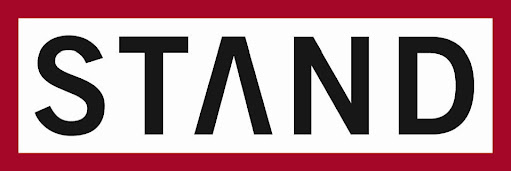Activists must oppose the imposition of structural readjustment policies and neoliberalism in general, which have generally impoverishing effects on the targeted country’s population, and serve to further concentrate wealth and power in the hands of a small elite sector of society (Fake and Funk, 2009: 125).
While Sudan divestment campaigns have enjoyed sympathy and success across the United States and Canada, two core institutions of First World economic power remain active in Khartoum: the International Monetary Fund (IMF) and the World Bank. Since their inception following the Second World War, the IMF and World Bank have promoted free market values around the world, offering substantial loans to developing nations and encouraging the formation of vibrant capitalist markets with minimum state intervention. However, when a recipient nation defaults on its loan, harsh social and economic policies are imposed. As we will see, those policies have been decisive instruments of environmental degradation, starvation and ineffectual governance in Sudan. For these reasons, Steven Fake and Kevin Funk suggest that advocates must seriously consider encouraging action against the IMF and World Bank.
As a ‘reward’ for lending Arab support to the 1978 Egyptian-Israeli Camp David peace agreement, Sudan was loaned billions of dollars in development aid by the IMF and World Bank. However, the money “quickly vanished in the corruption ridden government and Western expatriate aid administrators, leaving Sudan with a debt equivalent to its entire GDP.” In response, the IMF ordered a slashing of the state budget and privatization of government services and corporations. The IMF and World Bank also encouraged the continued development of an export-based economy (particularly agricultural products).
These policies have damaged Sudan in the recent past and threaten further harm in the future. With cutbacks and privatization, the quality of public services (such as schools and hospitals) inevitably declined, while national wealth has been absorbed by Sudan’s upper classes. Equally troublesome are the potential consequences of low oil prices or disrupted production. As Fake and Funk demonstrate, privatization reduces the opportunity for government patronage -often the only way for weak national authorities to buy off dissenters- leaving foreign investors to seek protection from a black market economy of violence. While the discovery of oil has buttressed the Sudanese government and averted (for now) an authority meltdown, any long-term decline in prices or disrupted production could expose the Sudanese government to dissenting forces. Because Darfur is challenged by desertification, lawlessness and a communications disconnect with Khartoum, a lasting peace for the region depends largely on a strong and responsive Sudanese central government. Unfortunately, even a stable government under IMF sponsorship may feel more accountable to the concerns of its “external backers” than those of its domestic constituents.
The IMF’s agricultural policies have also negatively affected Darfur. Traditional agricultural practices throughout Sudan emphasized the preservation of bush and forest fallow (for animal protein, timber and private crop production), and smaller scale production that left adequate reserves for personal consumption and did not depend on experimental hybrids. Under IMF encouragement, however, hundreds of thousands of acres were clearcut, “reducing humidity and cloud formation and increasing soil salinity.” Famines became more frequent throughout Sudan and the climate dryer, forcing farmers to open up new lands. Despite the surge in oil prices and production, agriculture remains a valuable export industry for Sudan. Now, with IMF approval, foreign companies are buying up huge tracts of Sudanese land, securing new food supplies as global agricultural output falls behind rampant population growth. To date, South Korea and the United Arab Emirates have purchased a combined total of 720,000 hectares, with another 378,000 in development. Unfortunately for the people of Darfur they will see none of that food anytime soon.
A new approach to Sudanese aid should be crafted, one that does not force the dismantling of state machinery and plants the interest of Sudanese people (including Darfurians) firmly before those of international creditors. The consequences of failure are already evident today, and under current regime no aid is better than IMF aid.
Gwynne Dyer, “African Land Grab”
http://www.gwynnedyer.com/articles/Gwynne%20Dyer%20article_%20%20Afric
an%20Land%20Grab.txt
Joseph Winter, “Khartoum booms as Darfur burns”
http://news.bbc.co.uk/2/hi/africa/6573527.stm
Steven Fake and Kevin Funk, “The Scramble for Africa: Darfur- Intervention and the
USA,” (Montreal; New York; London: Black Rose Books, 2009). (particularly
pages 28-30)
Jay O’Brien, “Sowing the seeds of famine: the political economy of food deficits in
Sudan” in World Recession and the Food Crisis in Africa ed. Peter Lawrence,
(London: Review of African Political Economy, 1986).
See also IMF and World Bank websites.
John R. Matchim
Continue reading this article...
Subscribe to:
Comments (Atom)
.jpg)


